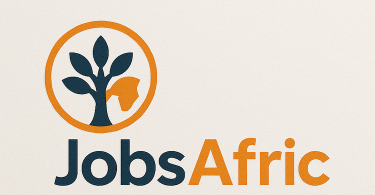Africa stands at a unique demographic crossroads. Home to the world’s youngest and fastest growing population, the continent holds immense potential for economic growth and innovation, often referred to as a potential “demographic dividend.” By 2030, projections indicate that half of all new entrants into the global labor force will hail from sub Saharan Africa. This burgeoning youth population represents a vast reservoir of talent, energy, and ambition, eager to contribute to their communities and economies. However, this potential is shadowed by a stark reality: the daunting challenge of finding meaningful and sustainable employment.
Despite the continent’s dynamism, the path from education to employment is fraught with obstacles for millions of young Africans. Unemployment and underemployment rates remain stubbornly high in many regions. Statistics paint a concerning picture: while overall unemployment across the continent hovered around 7% in 2024 according to some estimates, youth unemployment was significantly higher, projected at around 11%. Even more alarming is the prevalence of young people Not in Employment, Education, or Training (NEET). Recent data from the International Labour Organization (ILO) revealed that over 72 million young Africans fall into this category, representing more than a quarter of the youth population, with young women disproportionately affected, making up two thirds of this number. This situation underscores a critical gap between the aspirations of Africa’s youth and the opportunities available to them.
The quest for a good job in Africa often involves navigating a complex landscape characterized by skills mismatches, geographic limitations, information scarcity, and intense competition. In this challenging environment, leveraging effective tools and platforms becomes crucial for job seekers aiming to connect with potential employers and unlock opportunities. One such platform aiming to bridge this gap is JobsAfric.com. This article delves into the multifaceted challenges confronting African job seekers today and explores how JobsAfric.com positions itself as a dedicated resource designed to facilitate the job search process across numerous African nations, potentially offering a valuable gateway to opportunity in a demanding market.

Understanding Africa’s Diverse Job Market Hurdles
High Unemployment and Underemployment
The statistics paint a concerning picture of employment in Africa. While the continent wide unemployment rate was estimated at around 7% in 2024 (Statista), this figure masks significant regional variations and doesn’t capture the full extent of the problem. South Africa, for instance, reported an alarming unemployment rate of approximately 32% in late 2024 (Trading Economics), one of the highest in the world.
Youth unemployment presents an even more pressing challenge. The youth unemployment rate across Africa was projected at around 11% for 2024 (Statista), but this again varies dramatically by country and doesn’t account for underemployment or precarious work. Perhaps most concerning is the high rate of young people Not in Employment, Education, or Training (NEET). According to the International Labour Organization (ILO), more than 72 million young people in Africa fall into this category – representing more than one in four young Africans – with two thirds of them being young women.
Underemployment – where individuals work fewer hours than desired or in positions below their qualification level – is also widespread, creating a situation where even those with jobs often struggle to achieve financial stability or utilize their skills effectively.
The Skills Mismatch
Educational systems across many African countries have not kept pace with rapidly evolving industry needs, particularly in technical and digital fields. According to various studies, including those referenced by the World Economic Forum, more than 60% of South African companies see skills gaps as a key barrier to business transformation by 2030.
Many graduates emerge from educational institutions with theoretical knowledge but lack the practical skills and experience employers seek. As noted in research by organizations like Career Networks Africa, “Many graduates are not able to take initiative, work independently and apply their knowledge creatively to solve problems.”
The rapid pace of technological change continually shifts the skills landscape, making it difficult for education systems and job seekers to keep up. Digital literacy, in particular, has become increasingly essential yet remains underdeveloped in many regions.
Informal Sector Dominance
Geographic and Infrastructure Barriers
Gender Disparities
The Scale of Job Creation Needed
Information Asymmetry
Introducing JobsAfric.com: A Pan African Gateway
What is JobsAfric?
Platform Structure and Organization
- A prominent search function allowing filtering by job title, keyword, location, and category
- Job listings organized by recency and relevance
- Category based browsing options covering numerous industries and job types
- Specialized sections for remote work and internships
- Location specific filtering within the country (states, cities, regions)
- A “Trending Jobs” section highlighting popular or featured positions
Target Audience
- African Job Seekers: The primary audience includes individuals across the nine covered countries seeking employment opportunities, ranging from entry level to executive positions across various industries.
- Employers and Recruiters: Organizations looking to hire African talent can use the platform to post job listings and reach candidates across multiple countries.
- Internship Seekers: The dedicated internship section suggests a focus on young professionals, graduates, and students looking to gain experience.
- Remote Workers: The remote jobs section caters to the growing segment of professionals interested in location independent work arrangements.
JobsAfric as a Solution: Bridging Gaps with Key Features
Centralized, Multi Country Job Board
- Increased Visibility: By bringing together jobs from multiple nations, the platform significantly increases the pool of visible opportunities for users, potentially exposing them to roles they might otherwise miss.
- Cross Border Opportunities: It facilitates searching for jobs not just locally but also in neighboring countries or regions, broadening horizons for those willing or able to relocate.
- Reduced Search Friction: Instead of monitoring numerous local sites or publications, job seekers can use JobsAfric as a primary hub, saving time and effort.
Advanced Search and Filtering
Features:
- Keyword/Title Search: Allows users to search for specific roles or skills.
- Location Filtering: Enables narrowing down searches to specific countries, states, or cities, addressing the need for geographically relevant opportunities.
- Category Filtering: With nearly twenty distinct categories (from Tech/IT and Finance to Agriculture and NGOs), users can filter jobs based on their industry or field of expertise.
- Addressing Information Asymmetry: These tools help users cut through the noise and find jobs that match their specific qualifications and preferences, making the job search more efficient.
- Mitigating Skills Mismatch: By filtering based on categories and keywords, job seekers can more easily identify roles aligned with their skills and experience, reducing applications for unsuitable positions.
Diverse Job Categories and Specialized Sections
Features:
- Broad Industry Coverage: Includes traditional sectors like Agriculture and Construction alongside modern fields like Tech/IT and Creative/Media.
- Internship Section: Provides a dedicated space for entry level opportunities, crucial for graduates seeking initial work experience to bridge the skills gap.
- Remote Jobs Section: Caters to the growing demand for location independent work, although its effectiveness may vary (as noted by the empty results in the Liberia section during exploration).
- Accommodating Diverse Skill Sets: The wide range of categories ensures that individuals with different educational backgrounds and professional experiences can find relevant listings.
- Addressing Youth Unemployment: The internship section directly targets the challenge of youth unemployment and lack of experience, providing a pathway into the formal job market.
- Overcoming Geographic Barriers: The remote jobs section, when populated, offers a powerful way to bypass physical location constraints, potentially benefiting those in remote areas or women facing mobility challenges.
Employer Posting Feature
Impact:
- Direct Connection: Facilitates a more direct link between companies seeking talent and job seekers looking for roles.
- Wider Reach for Employers: Enables companies, both local and international, to reach a broad audience of potential candidates across multiple African countries.
- Potentially Fresher Listings: Direct posting can lead to more up to date job listings compared to aggregated content.
Linking Features to Specific Challenges
- High Unemployment/Limited Opportunities: Addressed by centralizing jobs from multiple countries and including remote options, expanding the overall pool of accessible roles.
- Skills Mismatch: Mitigated through detailed categorization, keyword searching, and the dedicated internship section for gaining experience.
- Geographic Barriers: Tackled via location specific filtering for local jobs and the remote work section for location independent roles.
- Information Asymmetry: Reduced by providing a single, searchable platform with structured job information and filtering capabilities.
- Informal Sector Dominance: While not directly creating formal jobs, the platform focuses on listing formal sector opportunities, potentially aiding the transition for some workers.
- Gender Disparities: The platform offers equal access, and features like remote work could disproportionately benefit women facing mobility or societal constraints, although specific initiatives targeting gender gaps were not observed.
In essence, JobsAfric aims to streamline the job search process by organizing information, expanding access, and providing tools for targeted searching. By offering a pan African perspective combined with localized filtering, it attempts to cater to both the broad regional trends and the specific needs of job seekers within individual countries.
The journey to finding meaningful employment in Africa is undeniably complex, marked by significant hurdles ranging from high unemployment rates and pervasive skills gaps to geographic limitations and information scarcity. The continent’s demographic boom presents both immense potential and a profound challenge, demanding innovative solutions to connect its burgeoning workforce with sustainable opportunities. In this context, platforms like JobsAfric.com emerge as potentially valuable tools in the job seeker’s arsenal.
JobsAfric, with its pan African focus covering nine countries and its array of features including multi country listings, advanced search filters, diverse job categories, and specialized sections for remote work and internships directly addresses several key pain points in the African job search process. By centralizing opportunities, enhancing visibility, and providing tools for targeted searching, it aims to reduce friction and bridge the gap between talent and employers across a significant portion of the continent.
It is important to maintain a realistic perspective. Based on initial exploration, JobsAfric is not without potential limitations. The absence of features like a CV builder or visible user testimonials, the seemingly sparse population of certain sections like remote jobs in specific country portals, and the lack of apparent skills development resources suggest areas where the platform could potentially evolve. Furthermore, being a UK based entity, its deep understanding of nuanced local market dynamics across all covered countries remains an open question, though its dedicated focus on Africa is a positive indicator.
However, these considerations do not negate the platform’s core value proposition. In a landscape where finding reliable, relevant job information can be a significant struggle, JobsAfric offers a structured, accessible, and geographically broad resource. It represents a step towards creating a more unified and transparent job market, empowering individuals to look beyond their immediate locality and explore a wider range of possibilities.
Ultimately, navigating Africa’s dynamic job market requires persistence, adaptability, and the strategic use of available resources. While no single platform can solve all the systemic challenges, JobsAfric.com presents itself as a dedicated and potentially powerful ally for African job seekers. By leveraging its features, individuals can enhance their search efforts, gain exposure to a broader array of opportunities, and take proactive steps towards securing employment that aligns with their skills and aspirations. Exploring platforms like JobsAfric should be considered an essential part of a modern job search strategy for anyone seeking to build their career on the African continent, contributing to the realization of its vast human potential.





Leave a Comment